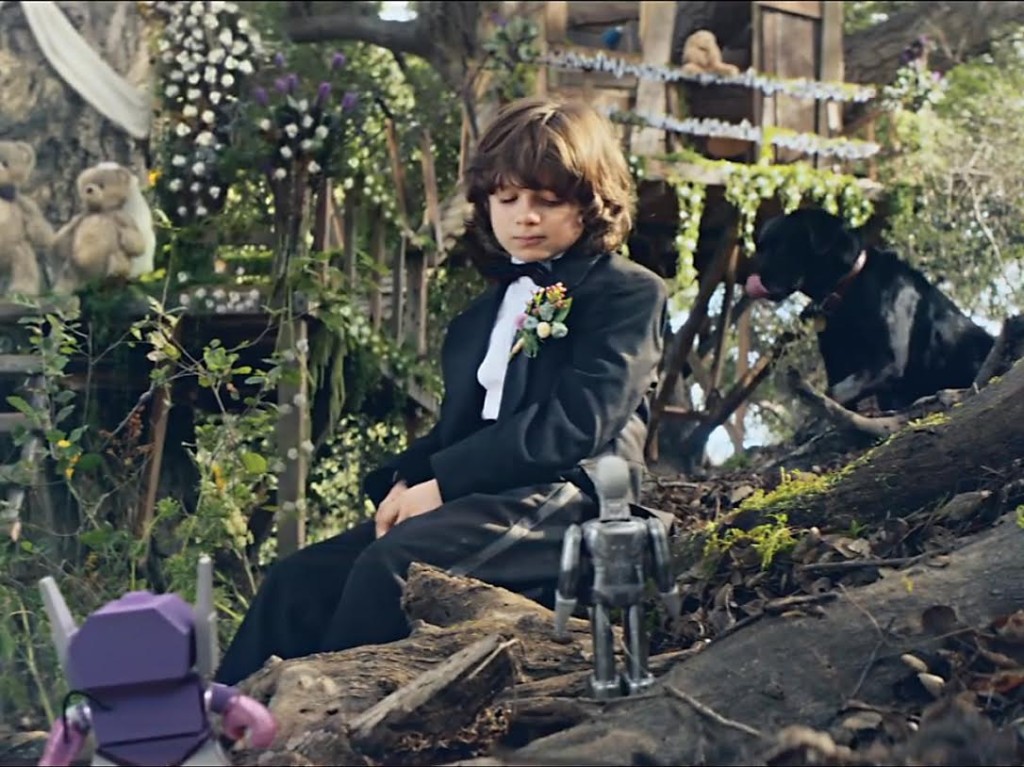
A running theme in insurance commercials, be it automotive, property or life insurance, is “here at ‘x’ insurance company, we care about you.” I have always found this patronizing, because many of these corporations try to pass themselves off as charities, pretending to be loving, father figures created to bestow money upon the less fortunate in their time of need. Imagine my surprise when Nationwide insurance decided to drop the facade and go into full-on crazy mode during their now-infamous “dead kid” advertisement during the first half of Super Bowl XLIX.
Exposure to this ad, even to those who chose to not watch the Super Bowl, is nearly unavoidable. Commentators on both the television and Internet have discussed it, several spin-off memes have been shared on Reddit and Facebook, and a YouTube video of the ad has amassed over six million views at time of writing. For the uninitiated, the ad features a young, blue-eyed child lamenting that he’ll never learn to fly, ride a bike or get married — because he’s dead. The screen then cuts to an image of an overflowing bathtub, and mentions that the number-one cause of childhood deaths is preventable accidents. It then shows a link to their “make safe happen” website and the Nationwide logo.
Now, the ad is effective. The sheer volume of people discussing one commercial several days after its original airing is impressive. However, the ad is also crass and manipulative. Rather than using the quality of their products to sell their merchandise, they’re playing on the fears of the number-one demographic for people with life insurance: adults who have children. It has often been said that any parent’s worst nightmare is having to bury their child, and Nationwide has used this universal fear to peddle their product.
Imagine how people who may have gone through a recent tragedy may have felt after seeing this commercial. The last thing anyone needs when going through the grieving process is some smug insurance company, pretending to understand your pain. The sheer insensitivity is palpable, much akin to a home security company airing a commercial wherein an axe murderer kills a family because they failed to install a home alarm.
Any non-psychopaths will generally agree that manipulating peoples’ fears is a bad thing, and it’s even worse when it’s carried about by a multimillion dollar corporation that claims to be “on your side.” In addition, the ad uses a trope from an M. Night Shyamalan movie that’s 15 years old, and that’s just lazy. The kid was dead the whole time! What a twist!
After the immense backlash that has come as a surprise to absolutely nobody, Nationwide has gone into damage control mode, stating that their advertisement was meant to bring awareness to their nonprofit campaign for home safety, instead of trying to sell insurance. The problem with this rationale is that the ad, and their “make safe happen” website, is plastered with the Nationwide logo. Even the downloadable guides that are supposed to have helpful hints on preventing child injuries around the home feature the logo.
Brand recognition is a big part of marketing, and people who view the website are constantly viewing that image. If the tips are helpful, their subconscious may make the association between “Nationwide” and “Child safety,” which will push them to purchase insurance from Nationwide. While their campaign does shed light on an important issue, their good intentions are undercut by their ulterior motive, which is to make a profit.
This debacle represents the worst of free-market capitalism. I love the free market; it creates a competitive marketplace where companies can vie for the favor of consumers by selling a superior product. However, it also leads to underhanded, manipulative sales methods, which are designed to draw people in by playing on their fears and desires. Insurance companies are some of the worst, claiming to be on the side of the consumer when in reality, their goal is to make money. Despite what any advertisement may say, Nationwide is not on your side — unless you have money.








